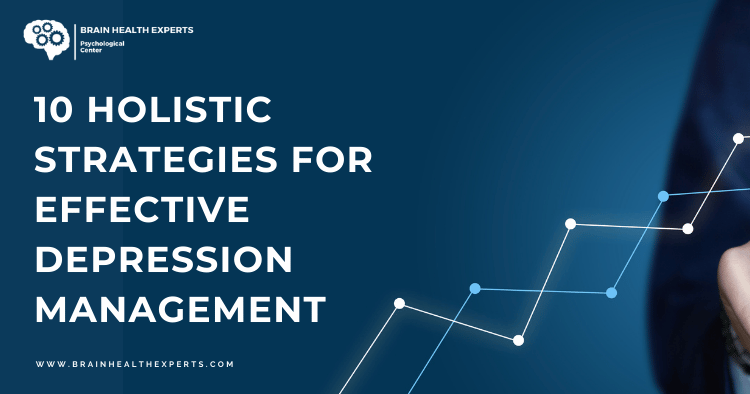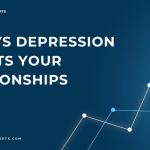Table of Contents
- Understanding Holistic Approaches
- 1. Mindfulness and Meditation
- 2. Nutrition and Diet
- 3. Physical Activity
- 4. Sleep Hygiene
- 5. Herbal Supplements
- 6. Acupuncture and Acupressure
- 7. Yoga and Tai Chi
- 8. Art and Music Therapy
- 9. Social Connections
- 10. Professional Support
- FAQs
- Conclusion
Understanding Holistic Approaches
Holistic approaches to depression management focus on treating the whole person—mind, body, and spirit—rather than just the symptoms. This method acknowledges that mental health is influenced by various factors, including physical health, emotional well-being, and environmental context. By integrating multiple strategies, individuals can create a personalized plan that empowers them in their journey toward healing.
1. Mindfulness and Meditation
Mindfulness and meditation are powerful tools for managing depression. These practices encourage individuals to remain present and aware of their thoughts and feelings without judgment. By focusing on the here and now, one can reduce anxiety and rumination, common triggers for depression.
Benefits:
- Reduces stress and anxiety
- Improves emotional regulation
- Enhances self-awareness
To get started, consider using apps like Headspace or Calm for guided sessions. For more on mindfulness practices, check out 10 Mindfulness Practices to Reduce Stress Effectively.
“Mindfulness is the gateway to self-discovery. By learning to observe our thoughts, we gain the power to change them.”
2. Nutrition and Diet
What we eat can significantly affect our mood and mental health. A balanced diet rich in fruits, vegetables, whole grains, and healthy fats can help alleviate symptoms of depression. Omega-3 fatty acids, found in fish and flaxseeds, and vitamins like B12 and D are particularly beneficial.
Nutritional Tips:
| Food Group | Benefits |
|---|---|
| Leafy Greens | High in folate and fiber |
| Whole Grains | Stabilizes blood sugar |
| Fatty Fish | Rich in omega-3s |
| Berries | Packed with antioxidants |
For more information, check out the Harvard Health Blog. You can also learn about how nutrition impacts mental health in 7 Foods to Reduce Stress and Boost Mental Wellness.
“Let food be thy medicine and medicine be thy food.” — Hippocrates
3. Physical Activity
Regular physical activity is not only vital for physical health but also plays a crucial role in managing depression. Exercise releases endorphins, the body’s natural mood lifters, and can help reduce feelings of fatigue and anxiety.
Recommended Activities:
- Walking or jogging
- Dancing
- Cycling
- Yoga
Aim for at least 30 minutes of moderate exercise most days of the week. Even a brisk walk can make a significant difference! For exercises specifically aimed at boosting mental health, see 10 Positive Thinking Exercises to Boost Mental Health.
“Exercise is a celebration of what your body can do. Not a punishment for what you ate.”
4. Sleep Hygiene
Quality sleep is essential for mental health. Poor sleep can exacerbate depression symptoms, while a good night’s rest can improve mood and cognitive function. Establishing a sleep routine can help regulate your sleep patterns.
Sleep Tips:
- Set a regular sleep schedule
- Create a calming bedtime routine
- Limit screen time before bed
- Make your sleep environment comfortable
For more tips on improving sleep hygiene, visit Sleep Foundation.
“Sleep is the best meditation.” — Dalai Lama
5. Herbal Supplements
Certain herbal supplements have shown promise in alleviating depressive symptoms. St. John’s Wort, for instance, is widely used for mild to moderate depression. However, it’s essential to consult with a healthcare provider before starting any supplement, as they may interact with medications.
Common Herbal Remedies:
- St. John’s Wort: May help with mild depression.
- Saffron: Some studies suggest it can improve mood.
- Rhodiola Rosea: Known for its adaptogenic properties.
“Nature itself is the best physician.” — Hippocrates
6. Acupuncture and Acupressure
Acupuncture and acupressure are traditional Chinese medicine techniques that involve stimulating specific points on the body to promote healing and balance. Research suggests that these therapies can help reduce symptoms of depression by improving blood flow and releasing endorphins.
Benefits:
- Can reduce stress and anxiety
- Improves overall well-being
- Non-invasive and drug-free
Consider seeking a licensed practitioner for the best results.
“The greatest medicine of all is to teach people how not to need it.” — Hippocrates
7. Yoga and Tai Chi
Both yoga and Tai Chi combine physical movement, meditation, and breath control, making them excellent holistic approaches to managing depression. These practices help to enhance mindfulness, reduce stress, and promote relaxation.
Yoga Styles to Try:
- Hatha Yoga: Great for beginners.
- Restorative Yoga: Focuses on relaxation.
- Yin Yoga: Involves holding poses for longer periods.
Tai Chi Benefits:
- Improves balance and flexibility
- Reduces stress and anxiety
- Enhances mental clarity
Check out local classes or online sessions to get started. For more on how physical practices can enhance emotional well-being, see 10 Ways Positive Thinking Boosts Emotional Well-Being.
“Yoga is the journey of the self, through the self, to the self.” — The Bhagavad Gita
8. Art and Music Therapy
Engaging in creative activities can be incredibly therapeutic. Art and music therapy allow individuals to express emotions and process experiences in a non-verbal way. These therapies can foster a sense of accomplishment and boost self-esteem.
Activities to Consider:
- Painting or drawing
- Playing a musical instrument
- Listening to music
- Creative writing
Explore local community centers or online platforms offering workshops. Additionally, consider how creative expression can be a tool for resilience in your mental health journey with 10 Ways Positive Thinking Boosts Resilience in Tough Times.
“Art washes away from the soul the dust of everyday life.” — Pablo Picasso
9. Social Connections
Building and maintaining strong social connections can have a profound impact on mental health. Supportive relationships provide emotional support, reduce feelings of isolation, and promote a sense of belonging.
Ways to Connect:
- Join local clubs or groups with shared interests
- Volunteer in your community
- Reach out to friends and family regularly
Building a support network can significantly enhance your journey toward recovery. Explore the importance of relationships in mental wellness with 10 Ways Positive Thinking Transforms Your Relationships.
“Friendship is born at that moment when one person says to another, ‘What! You too? I thought I was the only one.’” — C.S. Lewis
10. Professional Support
While holistic approaches can be incredibly beneficial, professional support is essential for effective depression management. Therapy, counseling, or medication may be necessary for some individuals to achieve optimal mental health.
Types of Professional Support:
- Cognitive Behavioral Therapy (CBT)
- Psychotherapy
- Medication management
If you’re struggling, don’t hesitate to reach out to a healthcare professional or mental health provider. For a deeper dive into CBT, check out 10 Effective CBT Techniques to Overcome Anxiety Today.
“The greatest healing therapy is friendship and love.” — Hubert H. Humphrey
FAQs
Q: Can holistic approaches replace medication for depression?
A: While holistic methods can complement treatment and improve overall well-being, they should not replace prescribed medications without consulting a healthcare provider.
Q: How long does it take to see results from holistic approaches?
A: Results can vary widely among individuals, with some noticing improvements within weeks.





